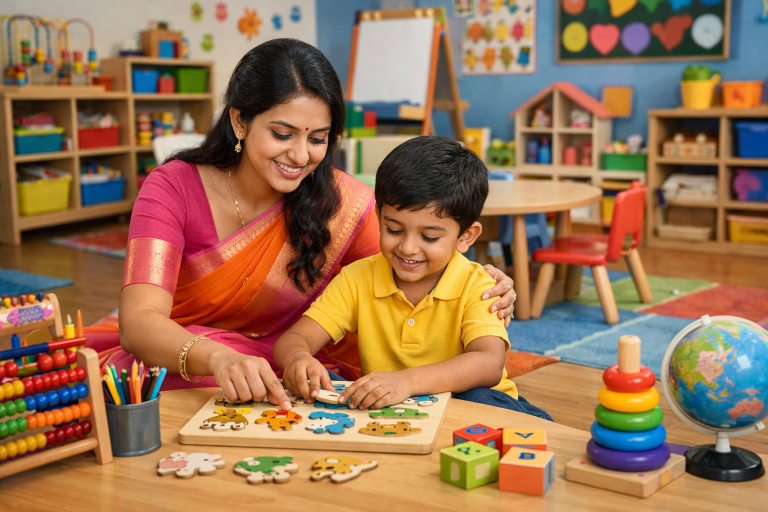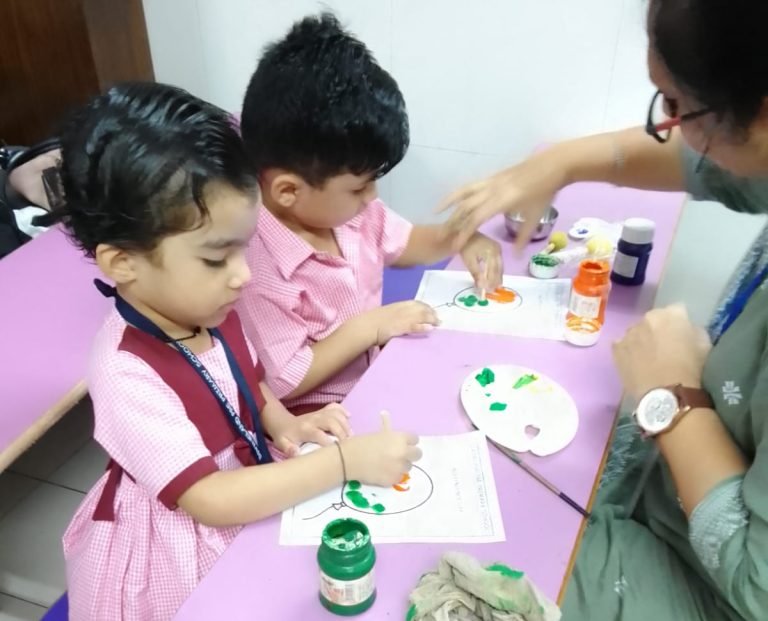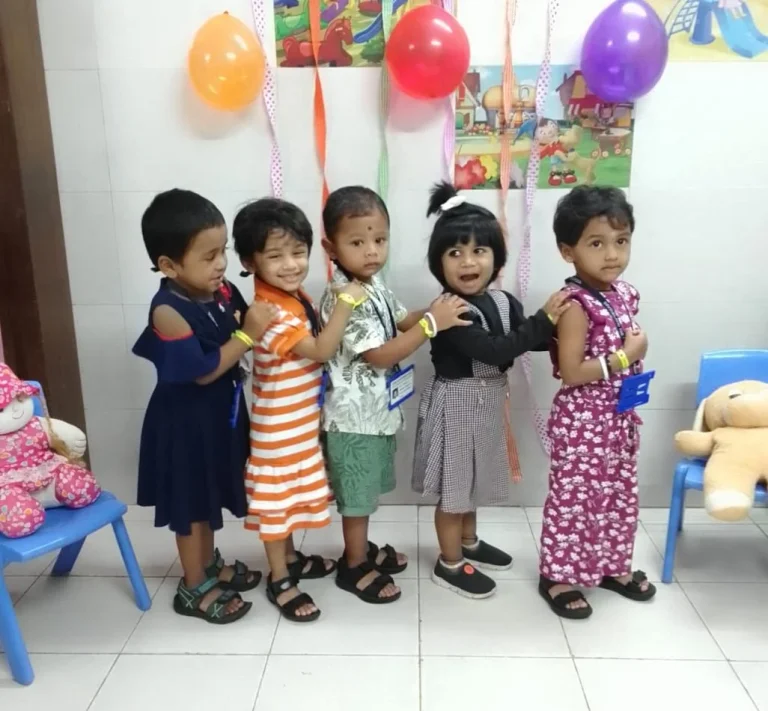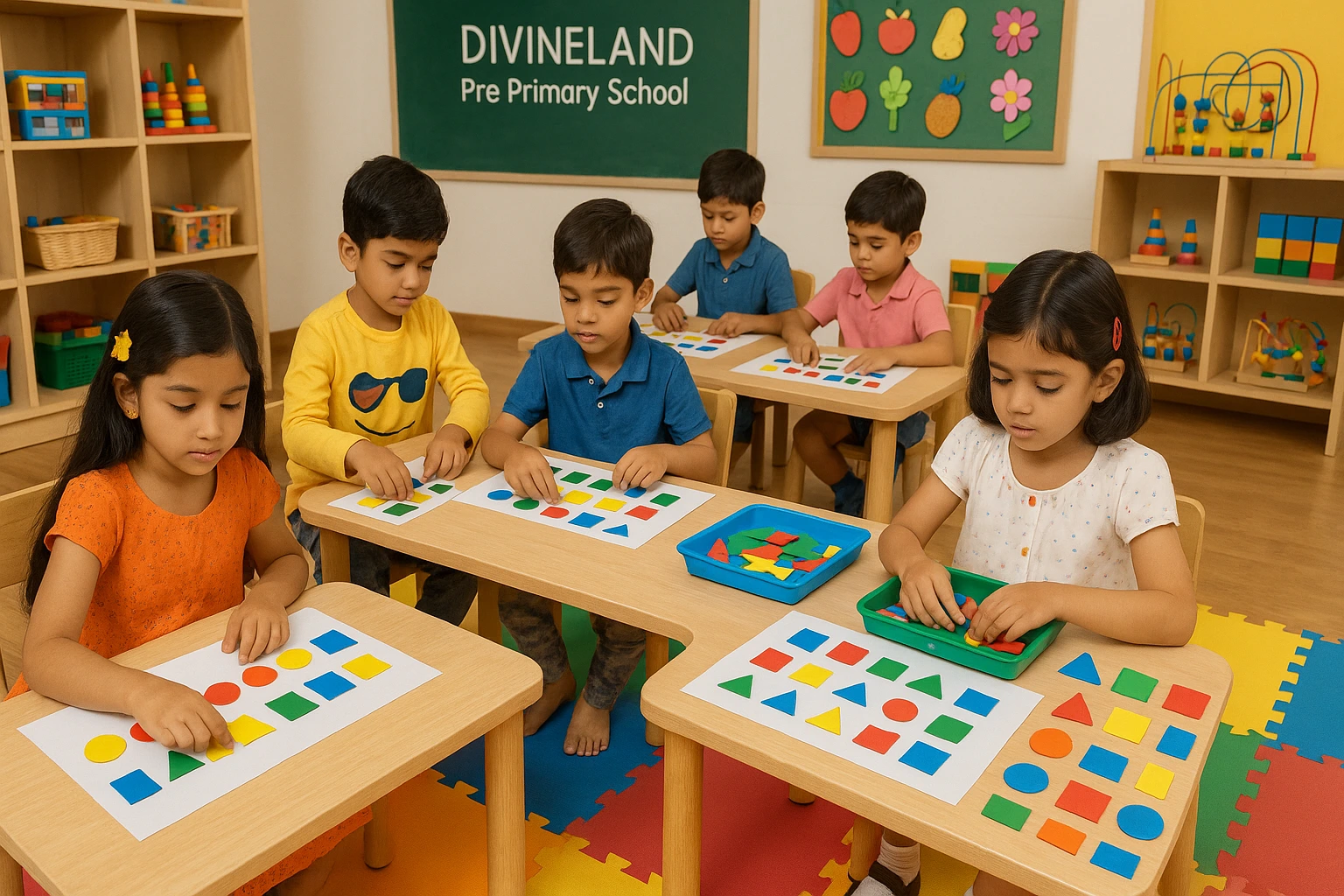
Nursery Education plays a main role in shaping a child’s early years by providing a planned yet playful environment for learning. At this stage, kids start to check the world near them with actions that form social, emotional, and thinking skills.
Nursery Education helps the kids get familiar with group situations, follow habits, and express themselves with confidence. With the right support, Nursery Education sets a strong base for future academic development and lifetime learning habits.
Core Goals of Nursery Education
Nursery Education is more than just a building block to primary school. It is a major time that shapes a kid’s nature, habits, and basic understanding of the world. Through planned routines and interactive play, Nursery Education focuses on developing the whole child—emotionally, socially, and cognitively.
Purpose of Nursery Education
The main aim of Nursery Education is to form a safe, motivating atmosphere where kids learn the basic skills required for later learning. It inspires children to explore, ask questions, and make sense of their surroundings while developing a sense of individuality.
Emotional Development
Nursery Education supports emotional growth by helping children:
- Know and manage feelings like joy, anger, fear, and frustration.
- Gain self-confidence through small successes.
- Develop patience and coping skills when facing tasks.
Kids in Nursery Education are gently directed to express themselves correctly and build a strong emotional base for future involvement.
Social Skills
Learning how to interact with others is a vital part of Nursery Education.
Children begin to:
- Share and take turns during group activities.
- Cooperate with peers in games and storytelling.
- Respect others’ space and feelings.
Through play, children learn important values like understanding, thoughtfulness, and responsibility—skills that help them succeed in school and life.
Communication Skills
Effective communication is a core focus of Nursery Education.
It helps children:
- Grow their vocabulary through songs, stories, and conversation.
- Learn how to listen vigorously and follow instructions.
- Express their thoughts clearly and confidently.
Language development in Nursery Education lays the beginning for reading and writing in later years.
Early Cognitive Growth
Nursery Education teach kids to simple problem-solving and thinking tasks. Activities are planned to improve memory, attention, and reasoning. Children learn to:
- Classify patterns and shapes.
- Choose objects by size or colour.
- Count numbers with everyday habits.
These early brain trainings make kids ready for more proper learning in primary school.
Learning Through Play and Interaction
Play is at the heart of Nursery Education. It changes learning into a happy experience.
Through play:
- Kids check ideas and discover new thoughts.
- Teachers see and support growing progress.
- Lessons become more important and easy to remember.
Nursery Education uses play-way learning to develop readiness for school in a natural, interesting way. It helps kid change to planned surroundings, know basic rules, and develop a liking for learning from the very start.
For Admission Details, Call or WhatsApp on +919082778593 / +918591021373.
Click Here, to download the School Brochure!
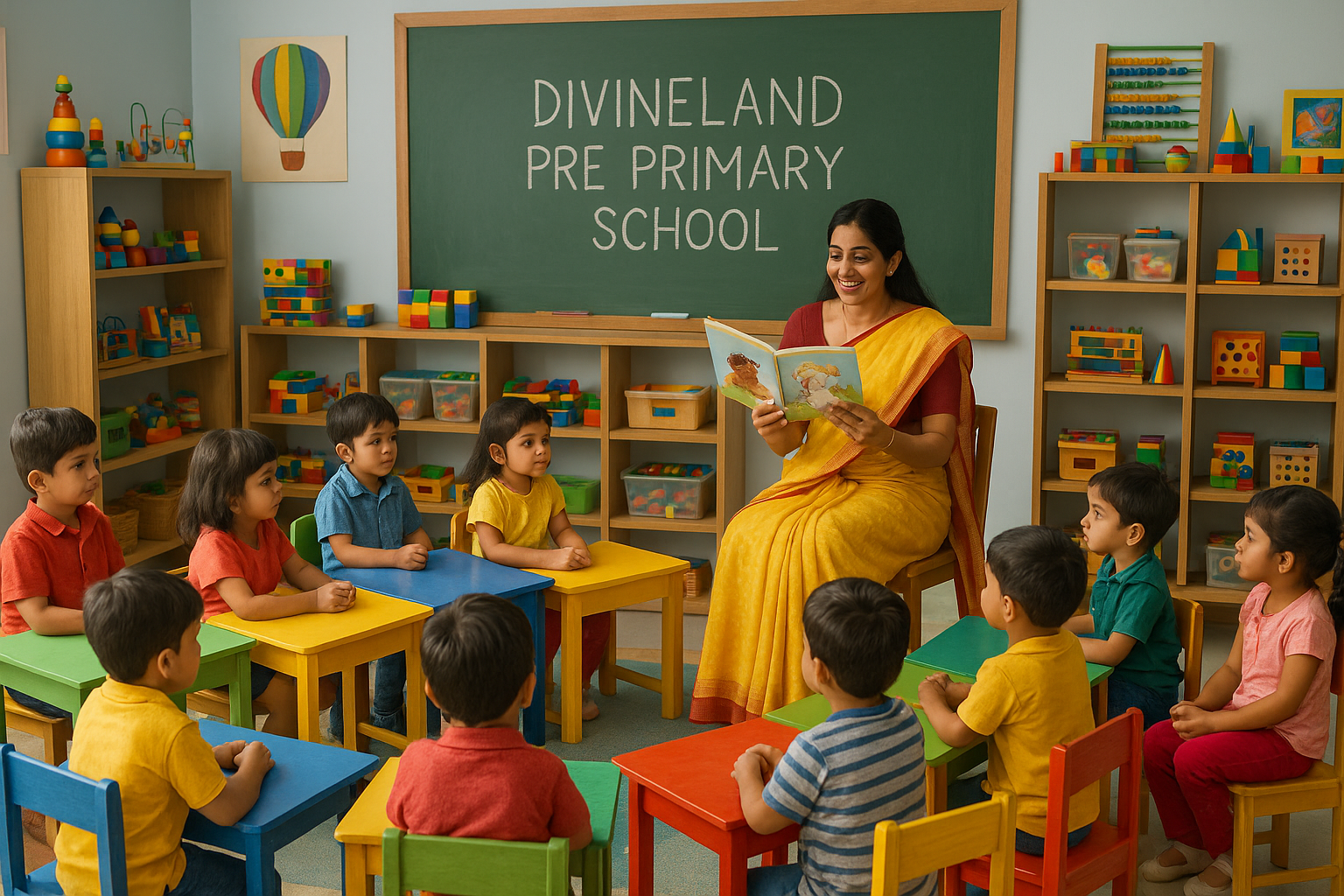
Skills Children Learn in Nursery
Nursery Education is not just about fun and play—it is an organised stage of Early Childhood where introductory skills take root. These early years are crucial for building a child’s learning habits, communication skills, and problem-solving methods. Through various hands-on practices, kid develop vital skills that support their smooth change into primary school.
Here’s a closer look at the main skills children learn through Nursery Education, along with examples that make learning fun and full of meaning.
Language Development
Language is at the heart of learning. Nursery Education focuses deeply on helping children express themselves clearly and understand others.
How it’s taught:
- Storytelling sessions introduce new words and sentence structures.
- Songs and rhymes help in learning and using language musically.
- Show-and-tell activities allow children to speak confidently in front of peers.
Why it matters:
Strong language skills support reading and writing in primary school and improve overall communication in daily life.
Early Numeracy Skills
Nursery Education presents basic math in playful ways that are easy for young kids to learn.
How it’s taught:
- Counting games with toys, blocks, or beads.
- Puzzles and shape arranging to build spatial awareness.
- Simple measurement activities like comparing height or size.
Why it matters:
These skills form the base for arithmetic, logic, and problem-solving talents needed later in school.
Fine Motor Skill Development
Fine motor skills include the control of small hand muscles, which are vital for writing, dressing, and handling objects.
How it’s taught:
- Art and craft activities like cutting, sticking, and colouring.
- Clay modelling to strengthen hand grip.
- Tracing patterns and drawing lines to improve pencil control.
Why it matters:
Through Nursery Education, children improve hand-eye coordination and build the control needed for handwriting and self-care tasks.
Listening and Attention
Learning to listen carefully is an important skill that affects a child’s ability to follow directions and in group activities.
How it’s taught:
- Circle time discussions to build attention span.
- Listening games like “Simon Says” or sound matching.
- Group storytelling that requires attention to plot and characters.
Why it matters:
Effective listening, built during Nursery Education, helps kid process information, follow classroom rules, and understand lessons better.
Building Independence
One of the most important part of Nursery Education is helping kids become confident and independent in small, daily responsibilities.
How it’s taught:
- Do-it-yourself habits like putting on shoes, washing hands, or tidying up.
- Free-choice playtime to let children explore and decide.
- Simple responsibilities such as handing out papers or being line leader.
Why it matters:
These habits increase decision-making and responsibility, helping children adjust to the prospects of primary school surroundings.
Social Skills Through Group Activities
In Nursery Education, group activities form a main part of the learning method. Kids learn how to work, share, and play together.
How it’s taught:
- Group play like building blocks together or role-playing in pretend kitchens.
- Turn-taking games that involve fairness and patience.
- Team-based art projects to promote cooperation.
Why it matters:
These activities help children learn understanding, teamwork, and polite behaviour—all important for healthy school associations.
Preparing for Primary Education
The skills grew through Nursery Education are the building blocks for proper learning. School experience will be smoother by using words to answer questions, holding a pencil correctly, or listening to the teacher’s instructions.
Nursery Education ensures that by the time a child enters primary school, they are:
- Ready to follow routines.
- Comfortable working in groups.
- Able to express needs and ideas.
- Equipped with basic literacy and numeracy understanding.
Through play, repetition, and pro-active learning, Nursery Education shapes kids for future success. The early attention on language, numbers, motor skills, and individuality makes kids ready to step into primary school with the confidence they need.
For Admission Details, Call or WhatsApp on +919082778593 / +918591021373.
Click Here, to download the School Brochure!
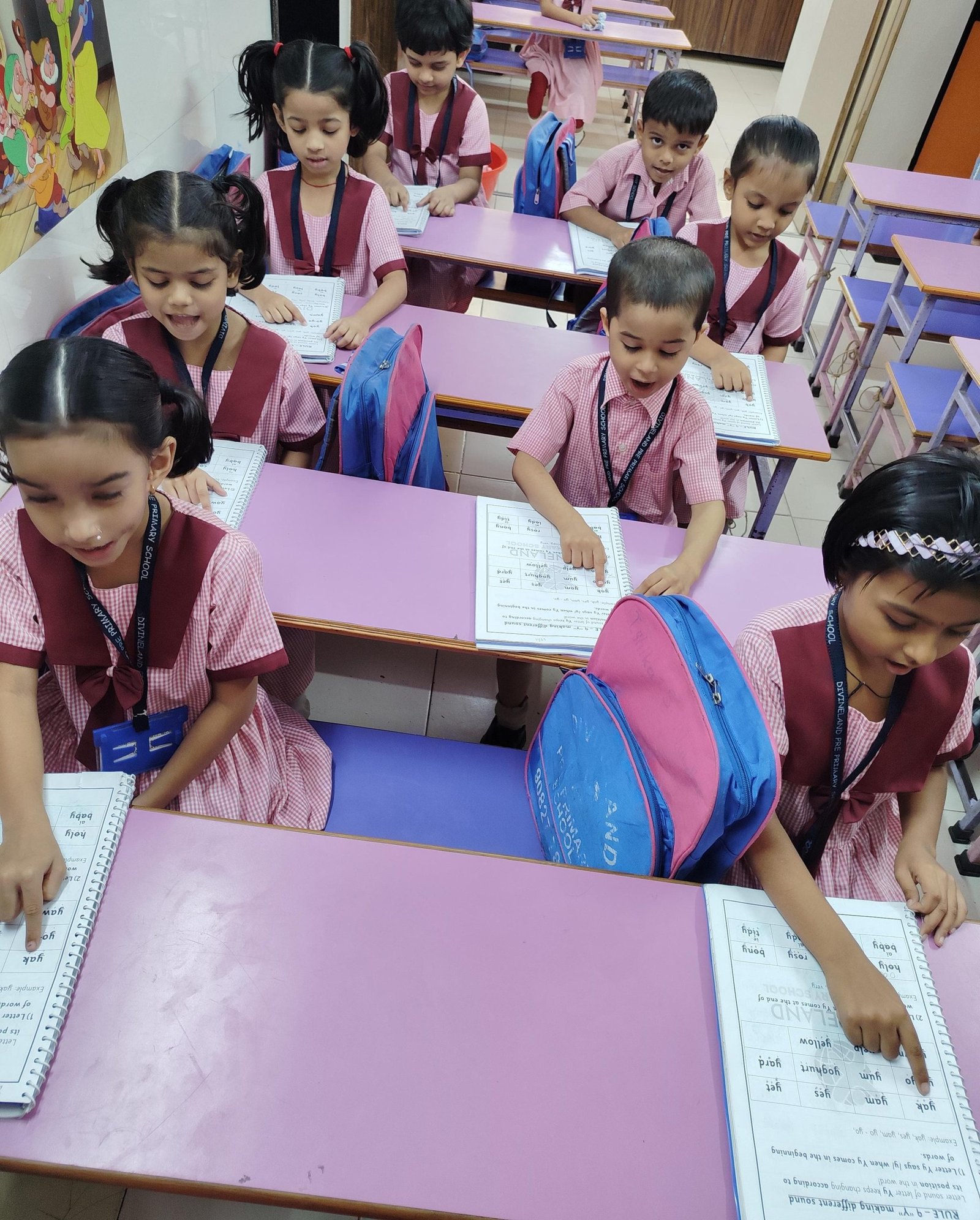
Best Nursery School in Gorai
Finding the right start for your child’s learning journey is important, and Nursery Education plays a big part in shaping that early experience. At Divineland Pre Primary School in Gorai, Nursery Education is built around care, creativity, and strong foundational learning. The school focuses on helping children grow through play, interaction, and age-appropriate activities that spark interest and love for learning.
Why Divineland Pre Primary School Stands Out:
- Experienced Educators: Teachers at Divineland are trained in early childhood methods and know how to meet the specific needs of each kid.
- Play-Based Learning: Activities are designed to make Nursery Education fun and meaningful, blending play with purposeful skill-building.
- Safe and Engaging Environment: The school offers a happy, cheerful, and safe space that inspires children to explore easily and confidently.
- Focus on All-Round Development: Along with literacy and numeracy, children learn social habits, sharing, problem-solving, and expressing feelings.
- Strong Parent Involvement: Divineland values parent partnerships and keeps families involved in the learning process through regular updates and events.
In Gorai, Divineland Pre Primary School has earned trust for providing excellence Nursery Education that respects each child’s pace of learning. The program is designed to support growth in language, movement, creative thinking, and early academics—without pressure. Teachers guide children with patience and care, helping them feel confident in every small achievement.
Give your child the perfect start—join Divineland Pre Primary School today!
For Admission Details, Call or WhatsApp on +919082778593 / +918591021373.
Click Here, to download the School Brochure!
FAQs
What is the Right Age to Start Nursery Education?
Most children begin Nursery Education between 2.5 to 3.5 years, when they’re ready to explore, interact, and adjust to a group learning setting.
What are the Benefits of Nursery Education?
Nursery Education helps build early social, language, and motor skills while preparing children for a smooth change to formal schooling.
Why Choose Divineland Pre Primary School in Gorai?
Divineland offers caring staff, play-based learning, and a safe environment that makes Nursery Education joyful and meaningful for every child.
